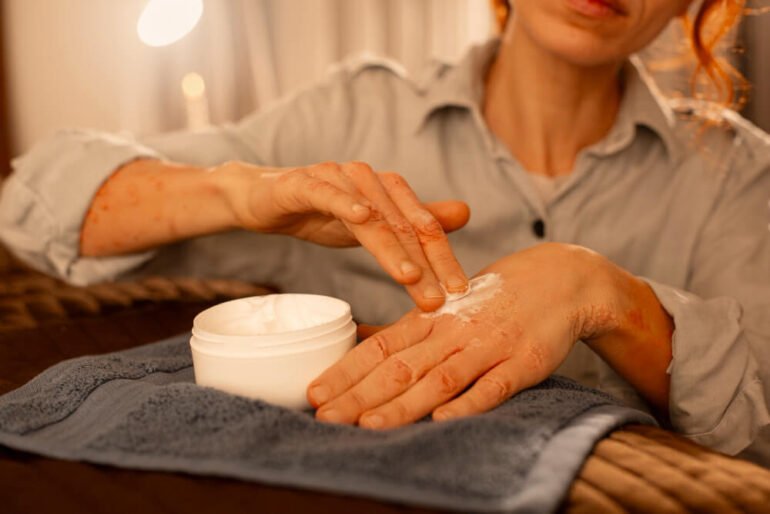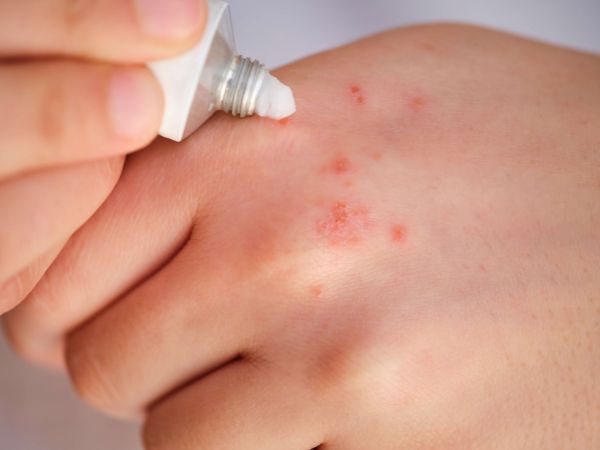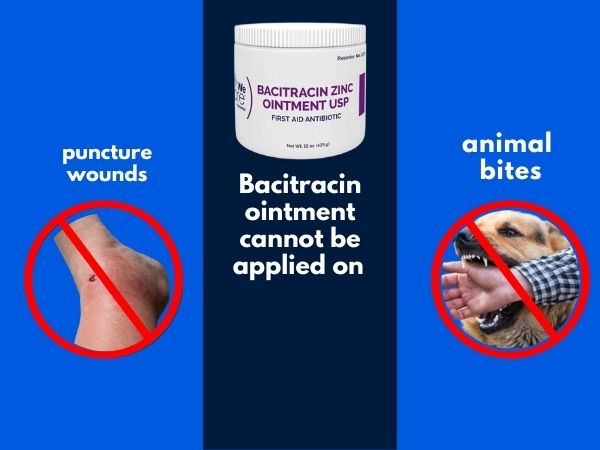The Benefits of Using Bacitracin Zinc Ointment for Minor Wounds

With an active lifestyle comes a greater risk of getting minor injuries such as cuts, scrapes, burns, etc. With time, these can get severely infected and require proper medical care to get rid of. However, these injuries, if kept clean and moist, do not pose a higher risk of microbial buildup at all. For this purpose, the use of bacitracin zinc ointment for minor wounds is recommended which protects the damaged skin.

But first, let us dive into the mechanism of action of the antibiotic as well as the benefits and effectiveness of bacitracin zinc ointment for minor wounds.
Bacitracin Zinc Ointment: An OTC Antibacterial Product
Bacitracin zinc ointment is a first-aid over-the-counter (OTC) preparation used to treat minor cuts and wounds. The ointment not only reduces the healing time but also provides protection against possible bacterial infections at the site of injury.
Ointment Strength
Each gram of bacitracin zinc ointment contains 500 units (iU) of the antibiotic as well as the same amount of zinc.
How does Bacitracin Work?
Bacitracin is a drug which belongs to the class of polypeptide antibiotics. It works by restricting the infection-causing bacteria from producing a protective cell wall around them. As a result, the bacterial cell becomes highly vulnerable to the attack of white blood cells (WBCs). Thus, the multiplication of bacteria at the site of injury is stopped and the infection subsides.
Using Bacitracin Zinc Ointment for Minor Wounds
The effectiveness of bacitracin zinc ointment for minor wounds is well-known. When used, the ointment provides the following benefits:
· It covers the wounded area and protects it against environmental damage.
· Due to the bacteriostatic action of bacitracin, the ointment stops microbial growth at the wounded site and prevents infection.
· The ointment also helps retain moisture within the wound which creates a healing environment and promotes recovery.
· The patients also report a painless healing experience when the ointment is applied as it relaxes the wounded skin.
When Not to Use Bacitracin Zinc Ointment?
One should avoid using bacitracin ointment in the following conditions:
· Injuries covering larger skin areas
· Punctured open wounds
· Second or third-degree burns
· Animal bites
· A history of allergic reactions associated with topical antibiotic use
· Pregnancy and/or lactation
Bacitracin ointment can treat minor cuts, scrapes, and burns but not serious burns
Bacitracin Zinc Ointment for Minor Wounds: Frequently Asked Questions
The following section covers some of the frequently asked questions regarding the use of bacitracin zinc ointment for minor wounds:
1. Can I Use of Bacitracin Zinc Ointment on Open Wounds?
The use of bacitracin zinc ointment for minor wounds is recommended. However, if the wound is open and deeper in the skin, do not apply the ointment. Rather, consult a healthcare provider to seek medical guidance.
2. Can I Use Bacitracin Zinc Ointment for Acne?
No, bacitracin zinc ointment is not suitable for the treatment of acne as it does not affect the bacteria responsible for it. The ointment is only effective against limited types of bacteria as the bacitracin antibiotic is narrow-spectrum.
3. Does Bacitracin Zinc Ointment Heal Scars?
Yes, bacitracin will prevent scarring when applied on a minor wound, cut, burn, or scrape. However, applying the ointment on a previous scar might not reduce it.
4. Between Bacitracin and Neosporin, Which One is Better?
Although the efficacy of both Neosporin and bacitracin zinc ointment for minor wounds is well-established and comparable, it is better to use bacitracin. This is because Neosporin contains neomycin, an antibiotic that often causes allergic reactions. With bacitracin, such risks are near to zero so it is safer to use. However, it is best to ask a healthcare provider before starting the therapy.
5. Is Bacitracin Safe to Use in Children?
Yes, the use of bacitracin zinc ointment for minor wounds in children does not cause any harm. However, if the child is below 2 years of age, ask a healthcare provider before using the product.

6. Can Bacitracin be Applied Internally?
No, the use of bacitracin zinc ointment is only suitable for external wounds. It should not be applied in internal body cavities. Similarly, the use of antibiotics in the eyes should also be avoided as it can cause serious side effects.
7. What If I Miss a Bacitracin Dose?
The recommended frequency for the use of bacitracin zinc ointment for minor wounds is 1 to 3 times a day. If you miss a dose of the ointment, wait until the next dosing time and apply the product. Do not double the dose and avoid increasing the frequency of dosing without consulting a healthcare professional.
8. Can Bacitracin Zinc Ointment Be Used in Pregnancy?
Although bacitracin zinc ointment has not yet been approved by the FDA, it has not been categorized into a pregnancy category. Therefore, its use in pregnancy and the possible side effects are not well-established. However, your physician might recommend using bacitracin zinc ointment for minor wounds during pregnancy only if the benefits are clearly exceeding the risks.
9. Can Bacitracin Zinc Ointment be used in Lactating Mothers?
The data that might indicate whether the topically applied bacitracin is excreted in milk or not is insufficient. There is a need to conduct more studies to establish the safety. However, the absorption of bacitracin in the bloodstream is poor so it can be hypothesized that its use during lactation would be safer for the baby.
In case of pregnancy and lactation, the use of Aloe vera, coconut oil, turmeric, or garlic on minor wounds can also speed up the recovery. Do not use any home remedy without consulting your physician. Do not use natural remedies for larger open wounds.
10. Can Bacitracin Cause Allergic Reaction?
Although the use of antibiotics is often associated with an allergic reaction, bacitracin is considered fairly safe when used within the recommended limit. However, if you experience any of the following symptoms with the use of bacitracin zinc ointment for minor wounds, discontinue the use immediately and consult your healthcare provider:
· Hives
· Redness
· Inflammation on the tongue, lips, face, and/or throat
· Itching
· Rashes
· Difficulty in swallowing
· Labored breathing
· Lower back pain
· Chest tightness

Bottom Line
While dealing with minor cuts and wounds, it is important to keep them clean and moisturized. Therefore, most people prefer to apply an antibiotic ointment to the site of injury. One such product is the bacitracin zinc ointment.
The ointment creates a moist environment around the wounded skin which promotes healing. In addition, the development of a bacterial infection is also effectively prevented. Hence, the use of bacitracin zinc ointment for minor wounds is safe and does not cause any serious side effects.
For purchasing bacitracin zinc ointment for minor wounds, reliable vendors like Health Supply 770 should be approached. They ensure the provision of quality products along with satisfactory services.



















